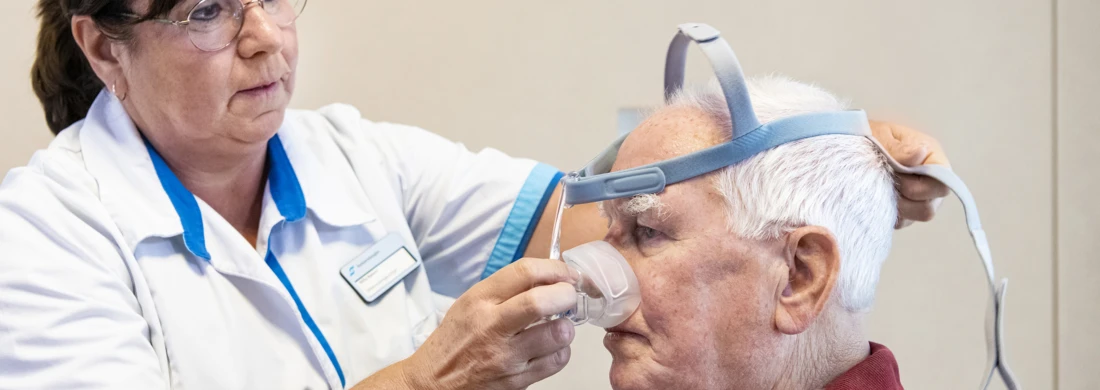Breathing disorders during sleep
Most people occasionally stop breathing briefly during sleep. However, it is only when this occurs frequently and leads to complaints that we refer to it as sleep apnea.

Most people occasionally stop breathing briefly during sleep. However, it is only when this occurs frequently and leads to complaints that we refer to it as sleep apnea.
Obstructive sleep apnea (OSA) occurs due to an obstruction or blockage in the throat. Common complaints include snoring, frequent urination, excessive sweating, vivid dreams, or the feeling of having slept lightly. You may not feel refreshed in the morning and may experience daytime sleepiness. Your memory and concentration may be affected, or you may become irritable. This can impact your work performance or your interactions with loved ones.
Sometimes, breathing pauses during sleep are noticed that are not clearly associated with snoring. This may indicate central sleep apnea (CSA). This type of sleep apnea is primarily seen in people with heart disease and after a stroke. Some painkillers containing morphine can also cause central sleep apnea. Lastly, central sleep apnea can occur in people with neurological or muscular diseases.
For a simple form of sleep apnea, treatment is typically provided in a general hospital. If you have a complex form of sleep apnea or multiple sleep issues, you can visit the Center for Sleep Medicine at Kempenhaeghe. We also offer specialized care programs for cases where treatment is challenging or when complaints do not improve.
Even if the diagnosis of sleep apnea has been made earlier, additional sleep studies are often needed at Kempenhaeghe for treatment. This is to determine the exact severity or to assess whether there are any other sleep disorders present. We can also measure whether any treatment is working effectively.
Our apnea team will evaluate which treatment option suits you best and which specialists will guide you through the process. We will develop a personalized treatment plan for you.